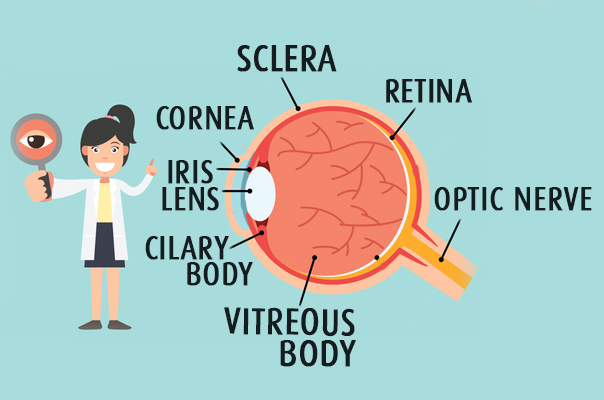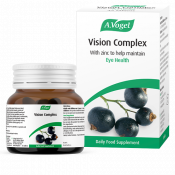Which fruit and veggies are good for eyes?
To keep your eyes in good condition, and to support other areas of your health such as immune function and skin, it is important to ensure your diet includes the recommended 5-10 portions of fruit and vegetables a day. Some fruit and vegetables that are particularly good for eye health include:
- Blackcurrants
- Kiwifruit
- Red pepper
- Blueberries
- Chickpeas
- Beetroot
- Spinach
- Carrots
- Tomatoes
- Sweet potatoes
As well as learning about how all these tasty foods can help your eyes, this blog will give details of a few easy recipes that include them.
1. Blackcurrants
This tasty dark purple berry is extremely high in vitamin C – four times higher than oranges, in fact! There are several ways vitamin C can benefit the eyes; for example, it:
- Protects cells
- Supports blood vessels
- Is needed to make collagen, a structural protein
- Helps to prevent dry eyes
- Helps to reduce the risk of developing Age-Related Macular Degeneration (AMD).
In addition, blackcurrants contain anthocyanosises which are powerful antioxidants and have anti-inflammatory properties. They are also useful in strengthening blood vessels and improving blood flow.
2. Kiwifruit
Lutein is an antioxidant known as a carotenoid. It is present in kiwifruit and gives the fruit it's bright green colour.
Research shows that intake of these antioxidants could decrease the risk of Age-Related Macular Degeneration.1
Lutein also protects the eyes against oxidative damage caused by light, and has been compared to internal sunglasses - sunglasses that you can create yourself just by eating naturally colourful food!

3. Red pepper
Zeaxanthin is another antioxidant known as a carotenoid. Like lutein, it has been shown to support eye health and reduce the risk of AMD.
Zeaxanthin is present in green, orange, yellow and red fruit and vegetables, so red peppers are just one example of where you may find it. Red peppers have the added benefit, however, of being rich in vitamin C.
4. Blueberries
Flavonoids stabilise blood vessels that supply nutrients to the eye, plus they feed tissue that supports the eye.
Flavonoids are found in a variety of fruits, but particularly dark fruit and vegetables like blueberries, blackcurrants and blackberries.
5. Chickpeas
There are high concentrations of zinc around the retina, so it is thought to be important for eye health and function.
The retina is the innermost layer of the eye, and contains light-sensitive nerves. These nerve cells help to convert energy from light rays into nerve impulses so that we are able to see in colour.
Zinc isn't highly available in many foods, though chickpeas are one reasonable source.
One way to tell you are low in zinc is if white specks develop on the nails. In this case, you could consider taking a zinc supplement (15mg daily with food) until they disappear.
6. Beetroot
A 2018 study found that vegetable nitrates, which are largely found in beetroot and green leafy vegetables, could reduce the risk of developing early stage age-related macular degeneration (AMD).2
In the study of more than 2000 people, conducted over a 15-year period, people who ate between 100-142 mgs of vegetable nitrates each day had a 35% lower risk of developing early AMD than people who ate less than 69mgs of vegetable nitrates each day.
Beetroot has nearly 15mg of nitrate per 100g.
7. Spinach
Spinach has approximately 20mg of nitrates per 100g, making it another vegetable that could help lower the chance of developing AMD.
As well as this, spinach is a good source of vitamins C, E and A. Vitamins A and E are important in protecting against AMD. Vitamin E also supports good quality vision more generally, whilst vitamin A helps us to see well at night and supports the health of the corneas.
To read more about how nutrients and eye health, take a look at my blog 'Could nutrient deficiencies affect your eyes?'.
8. Carrots
Carrots are a good source of carotenoids which are thought to protect the macula of the eye. The macula is positioned at the back of the eye near the retina and is slightly yellow in colour due to dietary carotenoids.
If the macula deteriorates, it reduces the ability to read, drive and even recognise faces as central vision becomes poor. Therefore, it is important to eat plenty of brightly-coloured fruit and vegetables, including carrots, in order to support eye health.
Nutrients derived from plants are easily recognised and absorbed by the body.
9. Tomatoes
Tomatoes are another fresh ingredient containing flavonoids. As mentioned, these support structural fibres in the eye called collagen which, overall, has a stabilising effect.
Flavonoids are found in a wide array of plant-based foods, but particularly brightly coloured fruit and vegetables such as tomatoes.
10. Sweet potatoes
This small, bright vegetable is abundant in nutrients. It contains beta-carotene (a form of vitamin A), for example, which is known to promote good eye by offering protection to the retina and cornea.
Sweet potatoes are also abundant in vitamin C which, as previously explained, is particularly good for eye health.
Eye-healthy meals!
Now, as you can see there are a variety of tasty fruit and vegetables that promote healthy eyes; but how can you incorporate more of these into your diet? Check out the recipes below for inspiration!
Breakfast
Lunch
Snacks
Dinner
Dessert
Fruit salad










